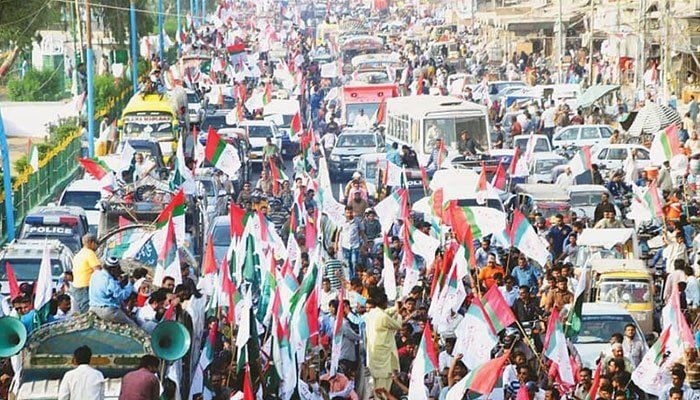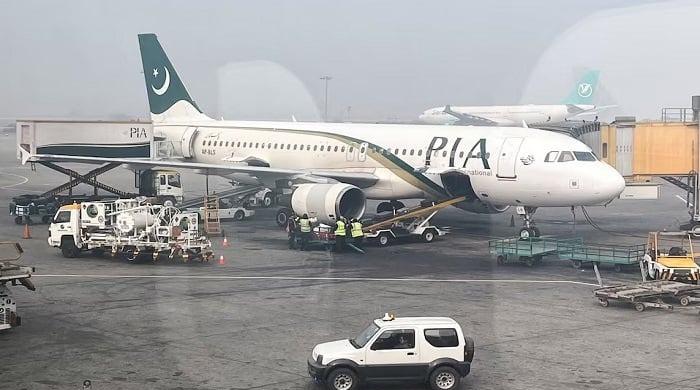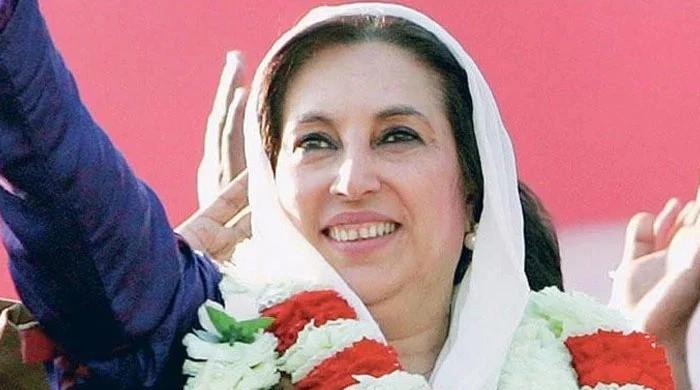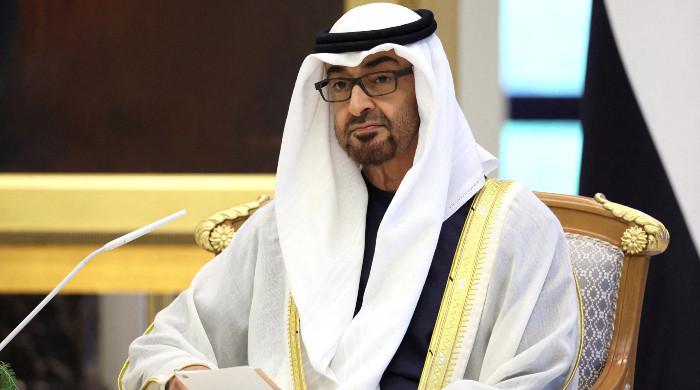The downfall of Mohajir politics
Political observers believe that fall of MQM was caused by its lust for power and its belief that it could control urban Sindh's violence, writes Mazhar Abbas
August 27, 2022

It was in 1978, a year after the imposition of third martial law when a group of Urdu-speaking youngsters decided to form a new student party in the name of Mohajirs, who had migrated from India post-partition. The students aimed to use their new platform to protest against the injustice in college admissions and jobs on the basis of quota, instead of merit.
They called themselves the ‘All Pakistan Mohajir Student Organization’ (APMSO). Within no time, they received such a massive response from the Urdu-speaking students that even more organised groups, like the religious Islami Jamiat Talba (IJT), began to see them as rivals. Many students who were members of the IJT left and joined the new party.
The founders of the APMSO were Altaf Hussain, Azeem Ahmad Tariq, Dr Imran Farooq, Ahmad Saleem Siddiqui, S.M.Tariq, Saleem Shahzad, Ms Zareen Majeed, and Ms Kishwar Zehra.
In 1984, these students along with some elders held a meeting at Liaquatabad in Karachi, at the residence of Master Ali Haider and formed a political party called the "Mohajir Qaumi Movement" (MQM). Altaf Hussain, who was later named the "Quaid", was not present at the time, as he was in the United States.
Those who remain associated with the MQM even today, told Geo.tv, on the condition of anonymity, that at first the name of the soft-spoken Azeem Tariq was suggested as "Quaid-e-Tehreek". But he himself stepped aside and thus a consensus was reached on the name of Altaf Hussain, because of his oratory skills.
It was also decided, on that day, that the party would be run on a democratic basis, with annual elections on all posts, except that of the Quaid, who will not contest in any general elections.
Initially, the party’s ideologues wanted to work closely with Sindhi nationalists, like G.M. Syed, against Punjab’s dominating role in the country’s civil and military bureaucracy. Thus, a delegation of the MQM, which also included the late Akhtar Rizvi, an old activist of the left-wing National Awami Party (NAP), played a key role in bringing the two groups onto one platform.
One party insider disclosed that the two groups had even agreed on an armed struggle if their demands were not met by the centre.
But this understanding could not last.
In 1987, an incident over renaming the Hyder Bux Jatoi Chowk triggered violence and led to the break-up of the undeclared alliance. Some believe the incident was a conspiracy to cause a dent between the two.
Even though the elders of the two groups managed to resolve their issues, a year later on September 30, 1988, the massacre in Hyderabad, which resulted in the killing of nearly 150 people, split the two communities.
By that time, the MQM had already established itself as the sole representative of urban Sindh when it swept all major cities Karachi, Hyderabad, Sukkur and Mirpur Khas in local government polls in 1987. Then, in the 1988 general election, it secured a major electoral victory in urban Sindh, while the Pakistan People’s Party (PPP) emerged victorious in rural Sindh.
When the two parties – MQM and PPP - decided to work together, and reached an accord, it was hailed across the board. Had MQM not fallen into the trap of the establishment in 1989, which asked MQM to vote against former prime minister Benazir Bhutto in the vote of no confidence, things could have been different.
This damaged MQM's reputation and credentials.
Political observers, who have followed MQM politics, believe that the fall of MQM was caused because of its lust for power and its flawed thinking that it could control urban Sindh's violence. This led to internal fights.
MQM’s decision to stray from its earlier goals affected the Urdu-speaking or Mohajirs the most. After the 2013 polls, with the rise of Pakistan Tehreek-e-Insaf (PTI), the MQM even lost its youth support.
During this time, its Quaid, Altaf Hussain, left the country and settled in London, taking dual nationality. He missed an opportunity when former president General Pervez Musharraf advised him to return.
The dilemma of the Urdu-speaking community has been that they could not fully align themselves with any political party after the split of the Muslim League. They took refuge in religious parties, like Jamaat-e-Islami and Jamiat Ulema-e-Pakistan (JUP).
But the Mohajir community must also self-reflect on where they went wrong. They are no longer the most educated class, as they were in the 50s and 60s. Nor do they have any say in the civil service.
It is high time that writers, intellectuals and thinkers across the board initiate a meaningful dialogue to promote a culture of tolerance and merit. And it is the responsibility of the government of the day to raise the standard of education in both rural and urban Sindh. Today, the province is far behind in this field to Punjab and Khyber Pakhtunkhwa.
This is the only way forward if we really want to make Sindh, the dharti (land) of Shah Latif.









